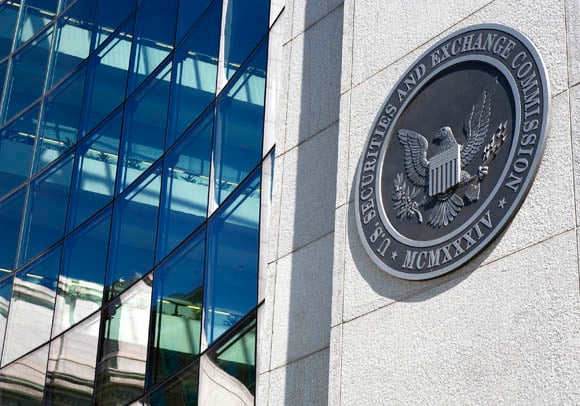U.S. regulators are poised to restrict investment advisers from giving money to politicians to win pension business in response to abuses in an industry that oversees $2.4 trillion of public retirement funds.
U.S. regulators are poised to restrict investment advisers from giving money to politicians to win pension business in response to abuses in an industry that oversees $2.4 trillion of public retirement funds.
Securities and Exchange Commission members will vote June 30 on rules aimed at preventing hedge funds and private-equity firms from trying to influence public officials who award pension contracts, the agency said in a statement on its website today. Last year, the SEC proposed that investment firms be barred from managing pension-fund assets for two years if their executives gave money to a politician with sway over contracts.
The SEC and New York Attorney General Andrew Cuomo have been probing state pension-fund corruption for more than a year. Quadrangle Group LLC, the private-equity firm co-founded by Steven Rattner, agreed in April to pay $12 million to resolve allegations it paid kickbacks to a New York political consultant to win an investment from a state retirement fund.
Rules considered by the SEC last July would have barred use of so-called placement agents, individuals and firms paid by investment advisers to help them gain access to pension money. The proposal followed allegations that New York officials arranged for a fund to invest $5 billion with money managers who paid political advisers associated with placement agents.
Credit-Suisse Group AG, in a September letter to the SEC, said a ban would eliminate the “critical capital-formation function” that brokerage firms provide as placement agents.
‘Cost-Effective' Competition
Senate Banking Committee Chairman Christopher Dodd, a Connecticut Democrat, said in a February letter to the SEC that banning placement agents risked eliminating the only “cost- effective way for smaller funds” to compete with bigger rivals in winning contracts to manage pension-fund assets.
The SEC moved away from the ban in December when Andrew Donohue, head of the agency's division of investment management, asked the Financial Industry Regulatory Authority whether it could restrict brokerages from engaging in so-called pay-to-play practices as an alternative.
Finra Chief Executive Officer Richard Ketchum responded in March, telling Donohue that rules aimed at keeping securities firms from engaging in “improper pay-to-play practices” are a viable alternative “to a ban on certain private-placement agents.”







